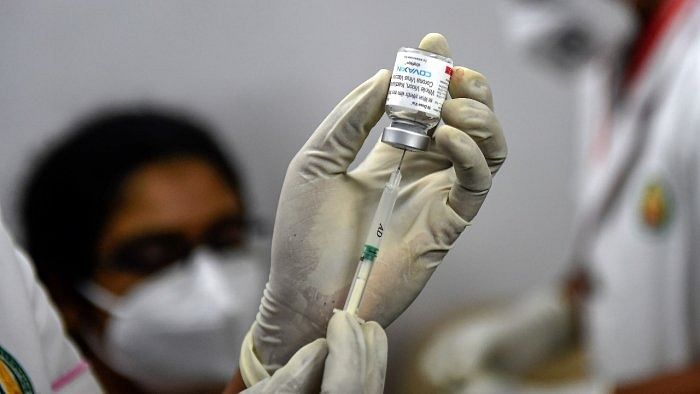
A test to measure antibodies in the blood post-vaccination among health workers has shown a majority of them have developed good immunogenic response, a sign that their body would blunt any attempt by coronavirus to invade.
About 140 healthcare workers vaccinated with Covishield at Sri Jayadeva Institute of Cardiovascular Sciences and Research (SJICR) with a four-week interval went through ELISA or enzyme-linked immunosorbent assay. The test revealed 78 per cent (or 109) of them to have good immunogenic response.
The workers have been tested a month after they took the second dose and will be tested once again after a month along with 200 more. The SJICR’s Bengaluru branch has 1,800 workers overall.
The ELISA test is useful in determining the number of antibodies in the blood, especially to ascertain if an individual has developed antibodies to fight certain infections. Antibodies are proteins the body produces in response to harmful substances called antigens.
Following Bengaluru, SJICR’s Mysuru branch will also hold the ELISA test for its health workers post-vaccination. “We were worried if our health workers have developed any antibodies at all after the government extended the interval between the first and second doses from 4 weeks to 6-8 weeks and then to 12-16 weeks,” SJICR director Dr C N Manjunath told DH.
“Although the concept is ‘later the better’, we found the immunogenic response (among vaccinated health workers) to be satisfactory even with the four-week gap (in vaccination)." While 30 per cent antibodies and above is considered ‘good immunogenic response’, Dr Manjunath said 50 per cent of the SJICR health workers had 30-60 per cent antibodies.
“Those who have recovered and have taken two doses possess the highest level of antibody response. This reiterates the fact that even those who have recovered should get vaccinated. It is almost like they have had three doses,” he said. “The best thing is to repeat the test after six or nine months. Even I’ll get tested today.”
Dubbing ELISA the superior form of testing antibodies, Dr Manjunath said though they measure B cell response, this method cannot detect T cell response.
“Many scientists have said even those with no significant antibody response will have some amount of cellular response to protect themselves from the severity of the disease. The objective is protection rather than prevention. (Vaccination) will reduce ICU admissions and deaths in the event of infection post-vaccination."
Manipal Hospitals chairman Dr Sudarshan Ballal, among the first group of doctors to get vaccinated on January 16, said routine antibody check is not recommended after vaccination, except in trials.
“I did check mine out of curiosity two weeks after the second dose and the levels were good,” Dr Ballal said. “Antibody levels may wane after few months, as has been observed in clinical trials, but that doesn’t corelate with immunity.”
